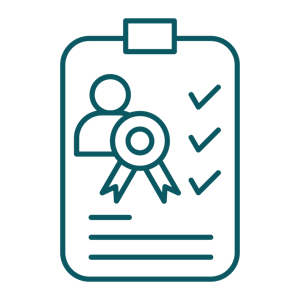The emergence of COVID-19 has brought public health to the forefront of the world’s attention in the past few years, but there seems to be a major gap in qualified talent to fill roles. Thanks to international travel, global health issues are not going to be isolated within countries and regions, but instead impact the world at large. As we saw with COVID-19, an outbreak in China was quickly followed by cases in New York. Now, the world is dealing with secondary and tertiary effects of COVID-19, like the troubling new data pointing to an increase in sudden infant death syndrome (SIDS) for Black babies three times higher than the rate for White babies1. There are many reasons to pursue a public health degree for graduate school, not the least of which is the potential for a varied and interesting career.
While qualified public health professionals couldn’t be more in demand, it is essential to understand what you can do with a masters in public health (MPH) prior to pursuing a public health degree. While some undergraduate institutions offer a public health major, completing an undergraduate public health program is typically not a requirement for admission into a masters in public health program. Public health professionals have many potential career trajectories in a variety of settings. In the next few paragraphs, we’ll discuss the wide range of public health careers available to someone with an MPH and the settings in which these jobs occur.
Some public health jobs are directly related to health care and are based within hospitals and community health centers, however the impact of these roles extend far beyond traditional patient care. These jobs may suit someone with existing health care or health administration experience, or someone looking to expand the impact of most health care jobs by bridging the gap between a more traditional hospital job and public health. Examples of hospital-based jobs that would be appropriate for someone with an MPH are:
public health nurse: focused on preventative care and education with the goal of keeping people out of health care facilities
infection prevention specialist: assesses the risk of someone developing an infection due to poor hygiene practices while staying at a hospital and comes up with strategies to minimize those risks
health services manager: leads a small group of health care providers within a practice or department, with responsibilities for financial oversight
healthcare administrator: a career with high level of responsibility, focused on improving hospital activities and ultimately patient outcomes
Some of these jobs, such as public health nurses and health care administrators, might best suit someone mid-career who has professional experience in health professions like nursing and direct patient care or health care management, or who is interested in pursuing a master of public health in conjunction with another professional degree like a JD or MS in Healthcare Administration. Others may pursue a job in health services from an interest in behavioral science.
A relatively new hospital-based career in public health is that of health informatics. This field grew out of the larger healthcare industry and developed as a result of the availability of data in electronic health records (EHRs) and has grown rapidly in the last 20 years. A key component of President Obama’s Affordable Care Act was the increased use of EHRs to improve the accuracy and speed with which laboratory data with patient test results are transferred to health care facilities2. While this data is essential for doctors and nurses to make treatment decisions, the availability of accurate and real-time data allows public health professionals to track disease outbreaks in communities. Someone working in health informatics reviews de-identified patient data from electronic health records and analyzes trends to improve healthcare delivery and in turn improve health outcomes for patients. One federally qualified health center in Boston, MA that serves a primarily non-English speaking patient population saw improvements in colorectal cancer screenings and diabetes control in patients, with staff also reporting improved follow-up for pediatric visits.
In a community health setting, someone with an MPH could work directly with patients and the public often to support population health as a community health worker or health education specialist. Community health workers and health education specialists fulfill similar roles focused on educating community members on public health issues like sexual health and nutrition, and work with specific groups to address health disparities. Many of the jobs available to a public health educator are a combination of developing educational curriculum on health issues, delivering content to participants, and planning events for the public like community health fairs. Some public health education professionals focus on issues like public health nutrition or mental health for personal reasons, or choose a focus based on the greatest needs of their specific community. Community health workers have been shown to improve outcomes for patients following an abnormal mammogram and increase compliance with gynecological testing3,4.




